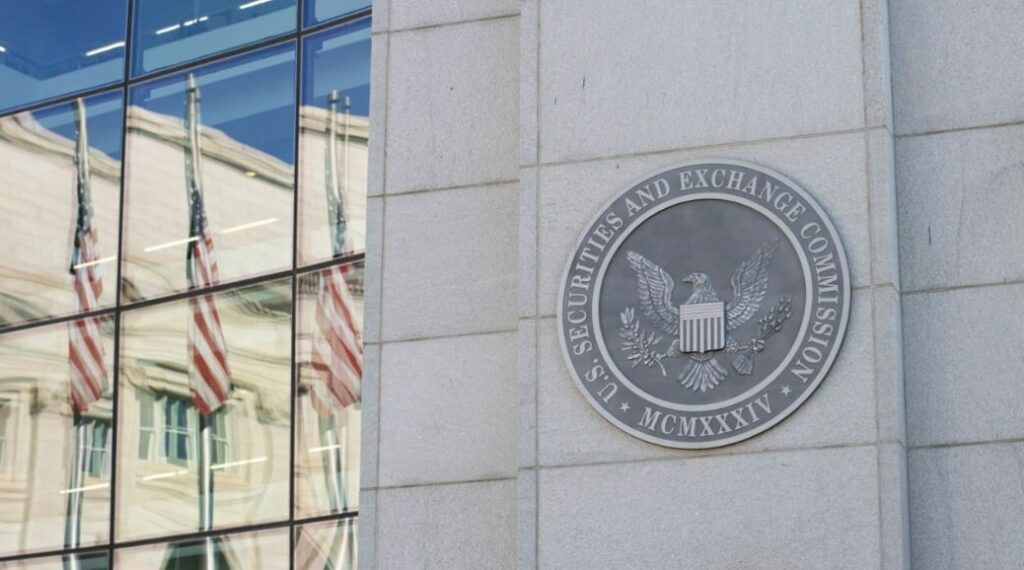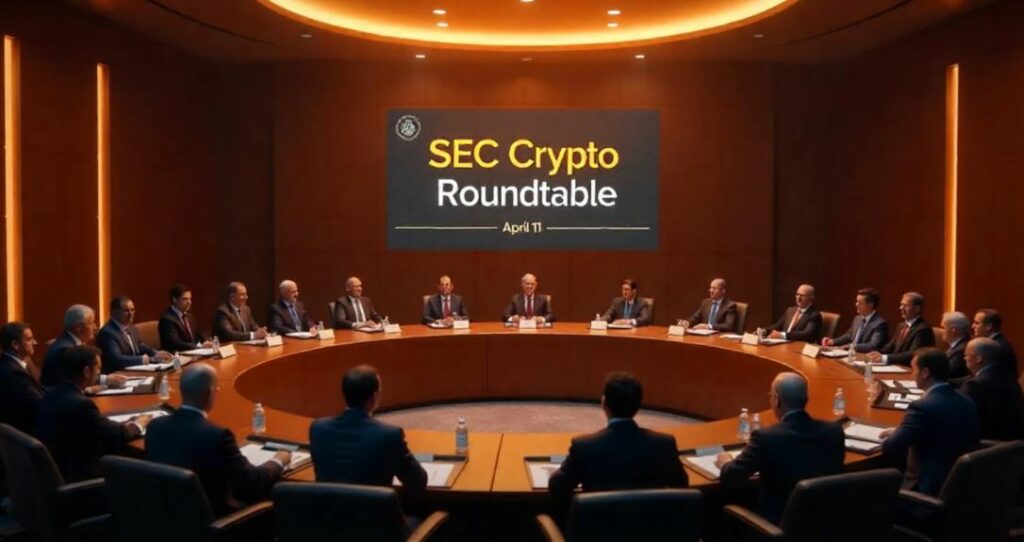
On April 11, 2025, the U.S. Securities and Exchange Commission (SEC) hosted a high-stakes SEC roundtable in Washington, D.C., aiming to rethink how crypto trading should be regulated in the United States. The event, titled “Between a Block and a Hard Place: Tailoring Regulation for Crypto Trading,” was the second meeting organized by the SEC’s Crypto Task Force, led by Commissioner Hester Peirce.
This discussion comes at a crucial time. As the crypto market evolves rapidly, regulators are under pressure to craft clearer rules, support innovation, and protect investors from increasing risks.

SEC Calls for a Federal Approach
Acting SEC Chairman Mark T. Uyeda opened the SEC roundtable with a strong message: the current regulatory system for crypto is broken. He pointed out that today’s crypto markets look a lot like the early U.S. securities markets—fragmented and growing without clear direction.
Uyeda criticized the state-by-state licensing system, calling it inefficient and confusing for both companies and investors. He proposed a more unified federal regulatory structure that could support crypto growth while ensuring stronger investor safeguards.
He also acknowledged how current federal securities laws pose serious barriers to innovation. For example, many crypto platforms face challenges when trying to list tokenized securities due to strict registration requirements and outdated market rules.
Uyeda urged innovators to speak up about where regulatory exemptions or reforms might help. He emphasized that blockchain technology could reshape the financial system—making trading faster, improving liquidity, and allowing for continuous 24/7 operations.
“I encourage market participants that are developing new ways to trade securities using blockchain technology to provide input on where exemptive relief may be appropriate,” Uyeda said.

Risks for Retail Investors
Commissioner Caroline A. Crenshaw focused her remarks on retail investor protection. She noted that crypto platforms are not like traditional financial firms. Many perform multiple roles—acting as brokers, custodians, and clearinghouses all at once. This bundling, she warned, can create major conflicts of interest.
Crenshaw explained that traditional finance separates these roles to avoid confusion and reduce risk. But in the crypto space, many platforms blur the lines, making it harder for investors to know who holds their assets or what protections they really have.
She cited recent industry failures that showed serious gaps in custody and registration practices, leaving users exposed to risks they didn’t fully understand.
“Crypto trading platforms are unique because, among other reasons, they often perform multiple services under one roof,” Crenshaw said. “That makes it harder for investors to know who’s watching out for them.”
Crenshaw challenged the roundtable participants to explore tough questions:
- Should crypto firms be required to register separately for each role they play?
- What execution standards should they meet?
- How can custody rules be updated to better reflect how crypto assets are held?
Why This Roundtable Matters
This SEC roundtable was not just another meeting. It was a clear signal that the SEC is preparing for a massive policy shift. Both Uyeda and Crenshaw agreed that the current system needs updates, but they approached the issue from different angles.
Uyeda wants more flexibility to help innovators grow.
Crenshaw wants stronger protections for investors before any new rules are passed.
Both acknowledged that crypto regulation can’t remain unclear forever. With new products, exchanges, and tokens launching every day, the risks of doing nothing are growing fast.
Industry Response and Next Steps
The SEC roundtable brought together policymakers, regulators, and crypto industry players. Many in the industry welcome the SEC’s efforts to listen. However, they also worry that overregulation could stifle innovation or drive companies offshore.
Participants agreed that any new rules must strike a careful balance. Regulation should be clear and fair but not so strict that it blocks future technologies or limits U.S. competitiveness in global markets.
One proposed idea is a sandbox model – a framework that would allow crypto firms to test new services under temporary exemptions while still following certain rules. Another idea is to create a separate licensing path for crypto platforms that offer multiple services, like trading and custody.
There was also strong support for the SEC to work closely with Congress, as major legal changes may require new laws beyond the agency’s current authority.
A Turning Point for Crypto in the U.S.
The April 11 roundtable marks a turning point in how the U.S. views crypto trading. It reflects growing recognition that the crypto industry is not going away and that new, thoughtful regulation is needed to guide its growth.
With SEC leaders like Uyeda and Crenshaw taking the lead, and with bipartisan interest from lawmakers, the next few years could bring the biggest transformation in U.S. crypto regulation since the rise of Bitcoin.
For now, the SEC is listening. But real change will come down to what happens next:
- Will regulators create a smarter, more unified system?
- Will the crypto industry help shape the future or fight it?
- And most importantly, will retail investors finally get the protections they deserve?
Only time will tell, but one thing is clear: crypto regulation in the U.S. is about to change.























